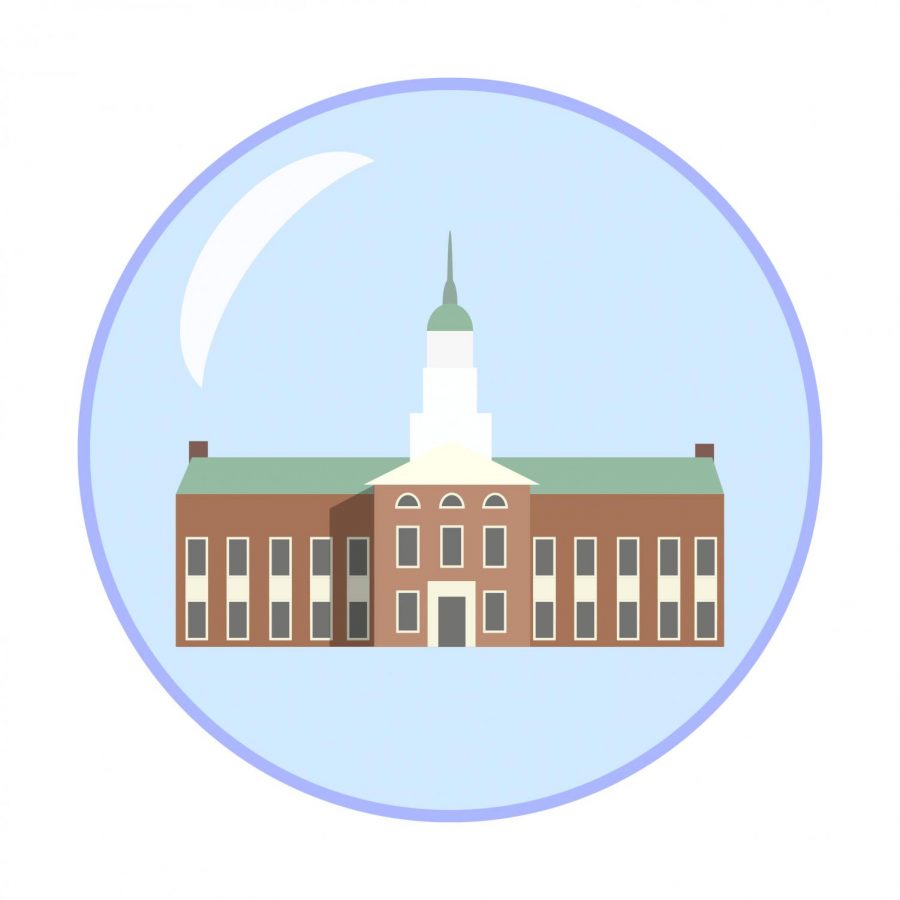Bucknell kids need to care about politics
January 30, 2020
The “Bucknell Bubble” is a familiar concept to anyone who steps foot on our campus for a long enough time. Our little town of Lewisburg, three hours away from most big cities and one of any significance, seems isolated from the “real world.” Sure, we learn about things that happen “out there” and get bits and pieces of news from that faraway place, but our interactions with it are truly few and far between. Those on campus, especially students, wouldn’t be blamed if they heard more about news from their Snapchat subscriptions than from anything that Lewisburg, Harrisburg or Washington, D.C. has to offer.
But this isn’t really okay. Our university is, of course, aimed at education, but also toward active preparation for the world coming before us. These are two very separate things, and that distinction is important. We may receive education about the history of television, the inner workings of the stock market or the small electrical components that, in part, allow me to type these words. We may even come across nuggets about how these impact our society and daily lives today. But, we spend little time learning about the world that truly lies outside the bubble.
It’s (understandably) a trope to critique the country’s education system for glossing over subjects (think taxes and voting) that will matter post-college. Maybe universities have chosen this to promote a more “hands-off” persona to politics. They may be hesitant to intervene: competing political priorities between the faculty and administration can be more simply resolved by a stalemate — avoiding the topic altogether. That’s why situations are so awkward whenever higher administration addresses political events on campus (think University President John Bravman’s email about Miko Peled or his verbal response to Heather Mac Donald during A Night With The Presidents). Persistent avoidance of stepping on toes results in very little real dialogue. The groups at high levels at universities, then, leave every single ounce of real political discourse to the students, and there the ball is dropped.
But information is out there. The League of Women Voters publishes an (actually) nonpartisan voter guide and literally drops it in the Elaine Langone Center a few weeks before every single election. Google “Voter Guide” and, come election day, Vote.org has resources to show you your exact ballot. Isidewith.com calculates percentages of how your personal ideologies align with those running for representative, senator, and president. Not to mention, pretty much any candidate running for any office has a website where they say what they want.
Information is plentiful – heck, it is oversaturated. But, it lies just beyond the reach of the average Bucknellian’s effort. The bubble is so real that even the media blitz that comes before each major election can seem insignificant and ineffectual. Even as my Twitter timeline and friends’ Instagram stories tell tales of the deplorable state of our country, in-person discussion of these politics is at a very real minimum. The average University student stays far away from the only clubs on campus (Conservatives, Democrats, Libertarians, Democratic Socialists) who care enough about the electoral process and political state to discuss it.
Ignoring politics is a luxury that Americans can’t afford: yes, even with the University’s overly wealthy student body. Politics are effectual, and in turn, affect every student and person in some way. Saying “my vote doesn’t matter” is the same thing as saying that “because I don’t experience it in a very real way, and because it doesn’t affect my placement among my peers, it doesn’t matter.”
Fighting for the right to vote is embroiled into our country’s history: from those taxed without representation, to women and Americans of color. We all must respect our right to vote — one truly hard-won — by exercising it in our democratic process. Our nation faces one of the most effectual political times in our history – the fourth presidential impeachment ever, the most diverse Congress ever, contrasted by rising suicide rates and declining life expectancy. Every single American’s voice needs to be heard, right now. It’s not just our right anymore, it’s truly our duty. Even here in Lewisburg, the real mark of politics, national and local, should truly be in the mind of every University student.






















